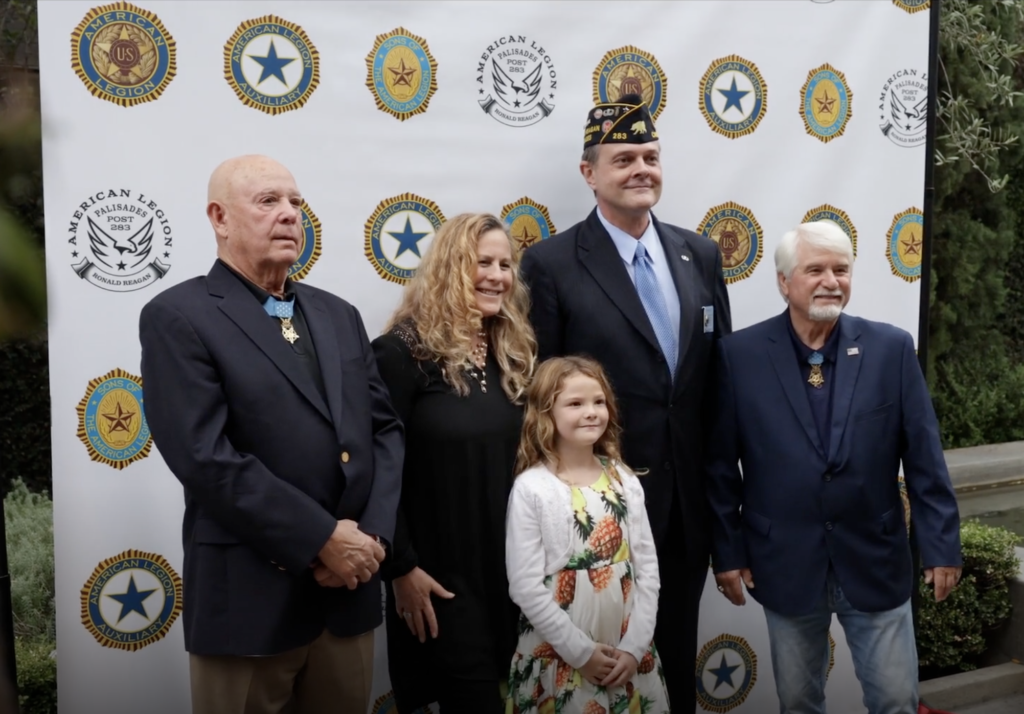
Medal of Honor recipients Gary Littrell (left) and James C. McCloughan (right) pose for a photo with American Legion Palisades Post 283 Commander Jim Cragg and his wife, Suzy, and daughter, Charlie, during the Evening of Honor event at the Luxe Hotel in Los Angeles in 2022.
Pacific Palisades, CA – In an inspirational gathering of valor and patriotism, American Legion Ronald Reagan-Palisades Post 283 is set to host “An Evening of Honor,” a special event paying tribute to the courage and sacrifice of our nation’s Medal of Honor recipients. Scheduled for Nov. 18, families and individuals alike are invited to engage with six of those heroes who have displayed extraordinary valor in the face of danger.
The event will be broken into two sessions in order to allow for more accessibility to the Medal of Honor recipients.
Interactive Family Session: Core Values and Heroic Stories
From 4 to 6 p.m., children and parents are welcomed to interact with the distinguished Medal of Honor recipients. This family-friendly session promises to be an enlightening experience, offering a unique chance to learn about the six core values of the Medal of Honor: courage, sacrifice, integrity, commitment, patriotism, and citizenship. Stories of heroism and valor will surely inspire and educate attendees of all ages.
Evening Networking Soirée: An Adult-Only Affair
As evening approaches, the event transitions into a sophisticated, adults-only Networking Soirée from 6:30 to 7:30 p.m., then a panel discussion from 7:30 to 8:30 p.m., then networking again from 8:30 to 9:30 p.m. Guests will enjoy an array of cocktails and a light buffet dinner while having the opportunity to network and engage in a deep conversation with the Medal of Honor recipients. The panel discussion promises to provide profound insights into the experiences that led to the highest military recognition for valor in the U.S. Armed Forces.
Honoring the Brave
The event will highlight the heroic actions of recipients such as Lt. Col. William D. Swenson, Staff Sgt. Ryan Pitts, Master Sgt. Leroy Petry, Specialist 5 James C. McCloughan, Col. (Ret.) Jack Jacobs, and Command Sergeant Major (Ret.) Gary L. Littrell. Their incredible stories span conflicts from Vietnam to Afghanistan, each narrative a testament to bravery and selflessness.
Venue and Admission
The Evening of Honor will be held at 15247 La Cruz Dr., Pacific Palisades. Due to limited space, interested attendees must RSVP to secure admission to this exclusive event.
Join Us in Celebrating True American Heroes
Don’t miss this rare opportunity to meet the men behind the medals. Reserve your space today and be part of a memorable evening dedicated to those who have gone above and beyond the call of duty.
The following bios were submitted by James Colbert, executive director, Heroes Linked.
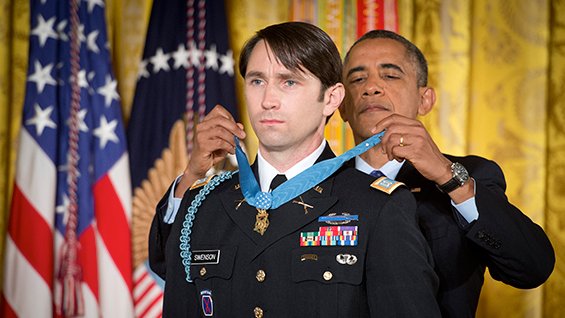
William D Swenson – Lieutenant Colonel, US Army
It would be on his second tour in Afghanistan, having been deployed on two previous tours – one in Iraq and a prior tour in Afghanistan, that Will Swenson would earn the Medal of Honor for his actions in the Battle of Ganjgal on September 8, 2009.
Part of a coalition force on their way to meet with the village elders, they walked directly into a well-planned ambush coming at them from three sides from higher ground. Within an hour, communication to the front of the column, including four U.S. servicemen, was lost. Meanwhile, then-Captain Swenson, who initially was positioned toward the rear of the column, called for air support, and with two comrades crossed 50 meters of open space under direct enemy fire to administer life-extending first aid to his severely wounded sergeant. When the column was surrounded by enemy fighters that advanced within 50 meters, Swenson responded to Taliban demands for surrender by throwing a hand grenade, an act of defiance that rallied his comrades to repel the enemy advance.
Swenson and comrades moved his sergeant and other wounded to a helicopter for medical evacuation before returning in an unarmored vehicle to the enemy’s “kill zone” for at least two more trips to evacuate additional wounded. Pushing even more deeply through the kill zone toward the location of the head of column in search of the missing four U.S. servicemen, Swenson’s party first rescued and recovered several Afghan National Security Force wounded and dead. Finally, Swenson and a small contingent recovered the four fallen U.S. servicemen who had been discovered by a search and rescue aircraft at noon. The six- to seven-hour firefight resulted in 15 coalition deaths, including the four U.S. servicemen. Swenson’s sergeant, Kenneth Westbrook, died of his wounds after returning from Afghanistan. Swenson’s actions are believed to have directly contributed to saving more than a dozen Afghan lives.
For his actions that day, William Swenson was awarded the Medal of Honor on October 15, 2013. Will Swenson continues today to serve our country on active duty with the US Army.
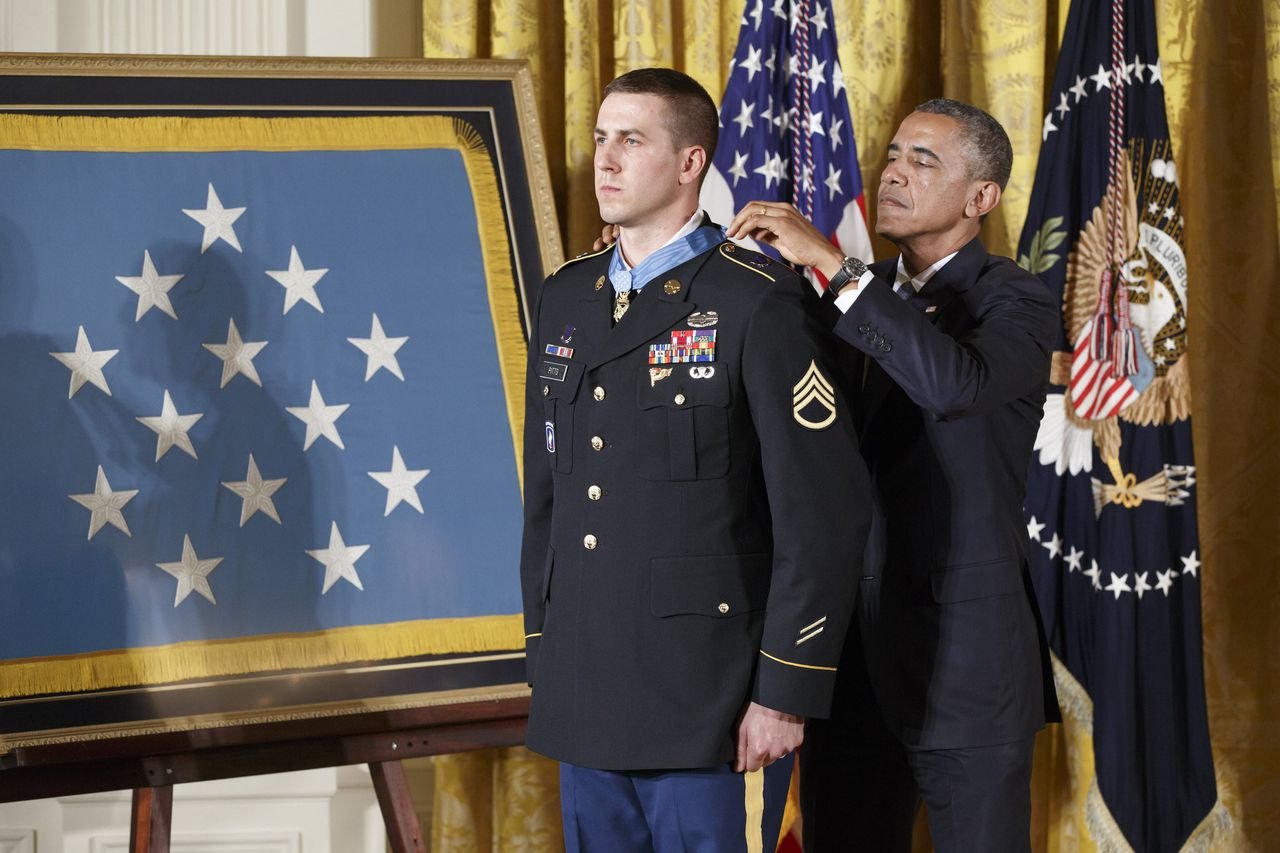
Staff Sergeant Ryan Pitts – U.S. Army
During the summer of 2008, Ryan Pitts and his team were part of Operation Rock Move, a transfer of forces from one combat outpost being closed to another near the village of Wanat. Having been deployed for 14 months, this was to be their last mission before leaving Afghanistan.
In the overnight hours of July 13, Ryan and his team of eight other paratroopers were manning Observation Outpost Topside, located on a ridge east of the main base, affording a view of the valley and the village below. Shortly after 4:00 am, they reported sighting insurgents in the high ground above the village. Then, at 4:20 am machine gun fire commenced from the north. Then all hell broke loose as the valley erupted in enemy fire with small arms fire, rocket-propelled grenades, and machine guns. Pitts and six other paratroopers at OP Topside were either injured or killed in the initial volley of enemy fire. Two other paratroopers were killed. Pitts took grenade shrapnel in both legs and his left arm.
For more than an hour after, despite his wounds, Pitts continued to fight and defend his position and his teammates.
Throughout the battle, despite the loss of blood and the severity of his wounds, Pitts’ incredible toughness, determination, and ability to communicate with leadership while under fire allowed U.S. forces to hold the observation post and turn the tide of the battle.
Without his ability to stay alert and fight while critically wounded, the enemy would have gained a foothold on high ground and inflicted significantly greater causalities onto the patrol base. Further, the enemy could have seized the bodies of the fallen soldiers at the observation post.
In a battle that would last for hours, and despite being severely wounded, Ryan Pitts would distinguish himself in an incredible display of courage against virtually unbeatable odds, earning the Medal of Honor, presented to him on July 21, 2014
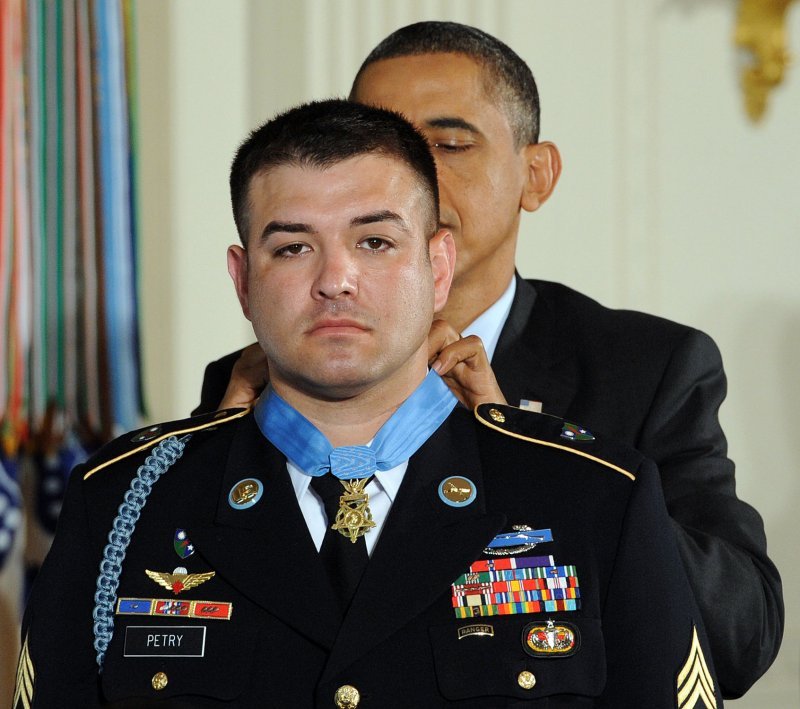
Leroy Petry – Master Sergeant, United States Army
One of the reasons we live free is that countless families over the years have felt an obligation to serve. In the case of Leroy Petry, such was the case. He was not the first to serve. Rather, he followed in other’s footsteps.
Completing his training, Leroy was assigned to 2nd Battalion, 75th Ranger Regiment. He would go on to serve in EIGHT different deployments, two in Operation Iraqi Freedom and six rotations in Operation Enduring Freedom.
It was during his 7th deployment, on a rare daylight mission in Pakyta Province Afghanistan on May 26, 2008, that then-Sergeant First Class Leroy Petry would earn the Medal of Honor. Serving as Weapons Squad Leader with D Company, Leroy and his unit were sent on a mission to capture a high-value target from the Taliban. The op would include 70 Rangers against an entrenched Taliban force. That day would change Leroy Petry’s life.
Within minutes of landing at the target, they were trapped and pinned down by a Taliban ambush. Directing the placement of his comrades, Leroy was shot through both legs. Despite his wounds, he continued the fight. Shortly thereafter a grenade landed in their midst. Without regard for his own life, he picked it up to throw it back at the enemy. The grenade detonated as he released it, severing his hand and part of his arm. Applying his own tourniquet to stem the bleeding he continued the fight.
Rather than accept a Medical Discharge, Leroy deployed on an 8th Tour to Afghanistan after his recovery, before knowing he would receive the Medal.
For his actions that day he received the Medal of Honor on July 12, 2011.
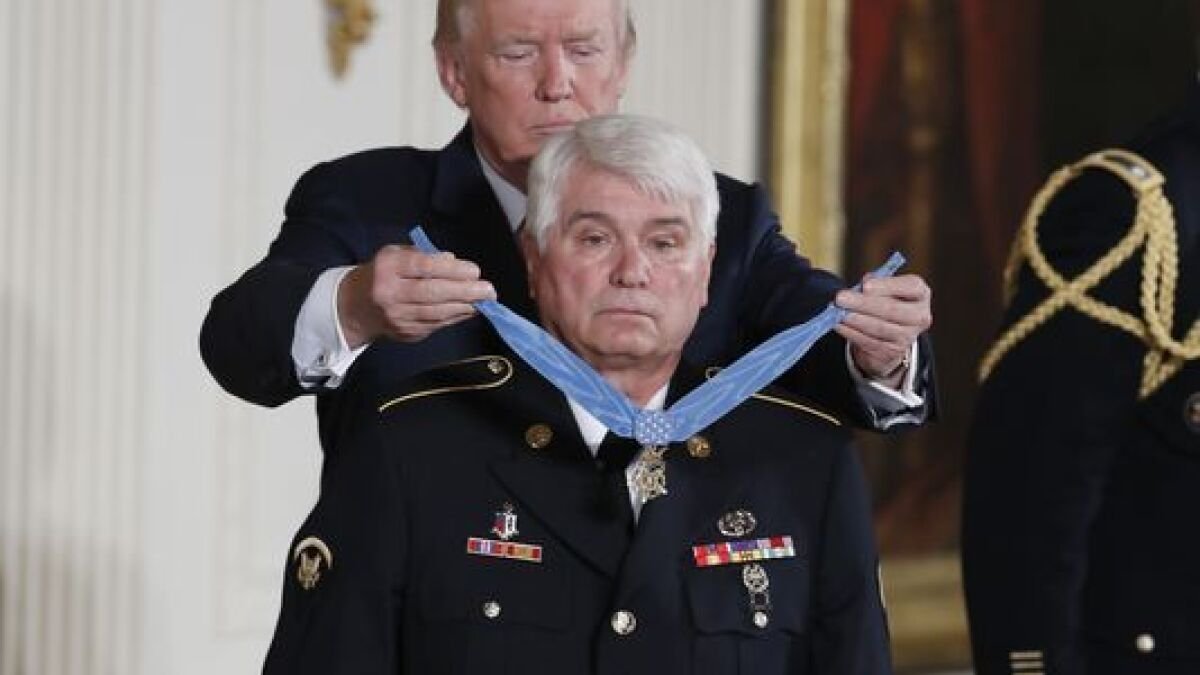
James C. McCloughan – Specialist 5 United States Army
On the morning of May 13, 1969, “Charlie Company” was combat assaulted into an area near Tam Kỳ and Nui Yon Hill and came under small arms and machine gun fire.
Seeing a wounded soldier lying on the ground nearby, too injured to move, McCloughan ran 100 yards to the soldier through an open field, ducking and dodging the crossfire of his company and a charging platoon of the North Vietnamese Army. Upon reaching the wounded soldier, McCloughan shouldered him and raced back to the company avoiding capture and saving the soldier’s life.
Later that afternoon, the 2nd Platoon was ordered to scout the area near Nui Yon Hill. The platoon was ambushed by a large NVA force and sustained heavy casualties. Seeing two wounded soldiers, Jim gave up his weapon, left the relative safety of the trench he was in, and ran across open ground to treat two wounded U.S. soldiers. He pulled the two soldiers back into the safety of a trench. Ignoring direct orders to stay back, Jim moved into the kill zone on four more occasions to extract wounded comrades.
At this point, wounded and bleeding heavily, Jim was ordered to evacuate with the other wounded. Because he was the only medic left, he refused and continued to treat wounded soldiers for the next two days. But that wasn’t all. In order to guide the medivac helicopters to land within his unit’s perimeter, he stood exposed in a clearing holding up a blinking red light. And it wasn’t over yet. During the morning darkness of May 15, continuing to fight and eliminate enemy soldiers, McCloughan knocked out an RPG position with a grenade. Jim is credited with saving the lives of 10 members of his company.
For his actions during these three days, Jim McCloughan was awarded the Medal of Honor on July 31, 2017.
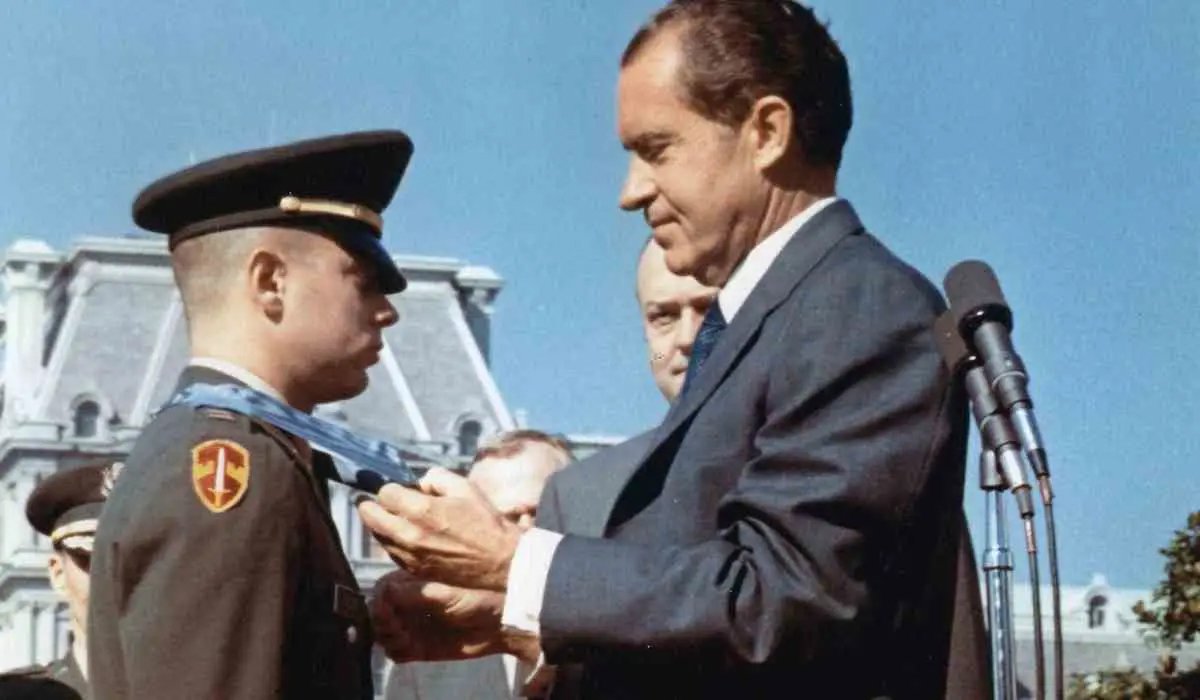
Jack Jacobs – Colonel (Ret.) – US Army
For Jack Jacobs, enlisting in the Army was a means to earn enough to attend law school.
On March 9, 1968, then-Captain Jack Jacobs was with the lead companies of his South Vietnamese Battalion when, without warning they came under intense fire from mortars, rifles, and machine guns by a Vietcong enemy force entrenched in bunkers not more than 50 yards from where they were standing. Within seconds, the ground became a killing field with many of the battalion killed or wounded. The casualties included Jack, hit by shrapnel from an enemy mortar round that tore through his and the top of his head. He was bleeding heavily with most of the bones in his face broken and having lost sight in one eye.
In complete disregard of his wounds, Jack dragged his badly wounded American sergeant to safety and then returned to the killing zone to save others. He did this over two dozen times, each time through a hail of enemy fire. He kept at it until he finally collapsed from his wounds.
Rotated back to the States to recover, Jack wound up in Vietnam again in 1972 and was wounded yet again. For his actions in the original battle, Jack Jacobs was presented the Medal of Honor by President Richard Nixon on October 9, 1969.
Jack has authored two books: If Not Now, When? Duty and Sacrifice in America’s Time of Need and Basic: Surviving Boot Camp and Basic Training. He is also regularly featured on the NBC Evening News and MSNBC as their expert on military affairs.
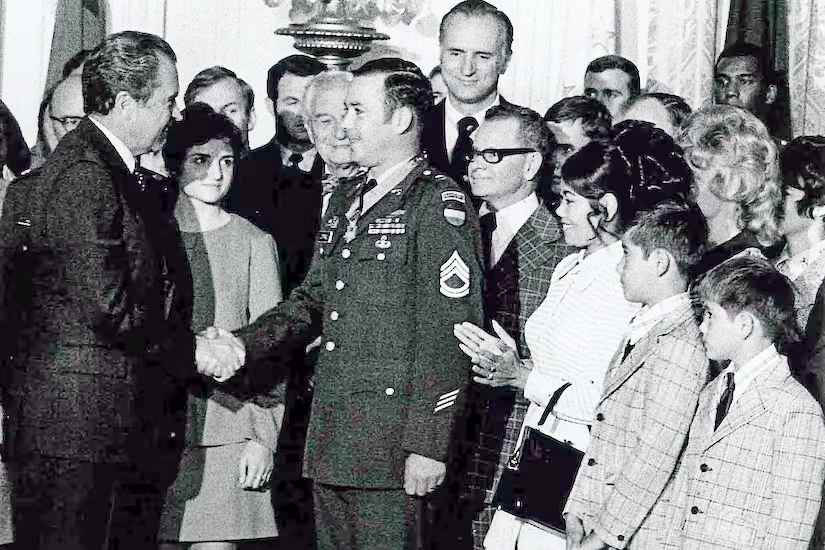
Command Sergeant Major Gary L. Littrell – U.S. Army
Early in the spring of 1970, Gary and three other American Soldiers were assisting the 23rd Battalion on a mission to rout North Vietnamese Army units that had been harassing U.S. Special Forces camps in Kontum Province. On April 4, 1970, the American advisors and 473 South Vietnamese Rangers found a whole lot more than they bargained for, a mass of nearly 5,000 enemy troops. As quickly as they could, they established a defensive perimeter on a hill while under a ferocious mortar attack. Within minutes, the South Vietnamese battalion commander and one of the American advisers were killed. Then, two other advisers were wounded, leaving then-Sergeant First Class Gary Littrell the only one left, in command.
Over the next four days, Littrell seemed to be everywhere at the same time. Despite their heavy losses, he exhorted the South Vietnamese troops not to give up. Moving along the defensive perimeter, he distributed ammunition and tried to help the wounded. Repeatedly abandoning positions of relative safety, he continually called in air support and artillery fire on the advancing enemy. At times he directed the American air strikes to within a few yards of his position. Even at the end of the fourth day, he was still in perpetual motion.
On April 8, 1970, Gary’s commanding officer radioed him to attempt a retreat. Using helicopter gunships to guard his flanks and Air Force fighters to clear a pathway to his front, all the while fighting off constant enemy ambushes, he moved the men five miles to link up with reinforcements. Of the 473 South Vietnamese Rangers who had begun the battle, forty-one walking wounded came out after all but eliminating the entire North Vietnamese force.
On October 15, 1973, Gary Littrell received the Medal of Honor from President Richard Nixon in a ceremony at the White House.













